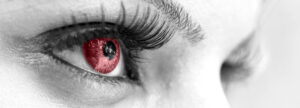The Ups and Downs of the Female Libido
Libido /lɪˈbiːdəʊ/ noun
noun: libido; plural noun: libidos 1. sexual desire.
Psychological Causes
Modern-day life can be tough on us all; especially in the turbulent times, we have all faced this year. Juggling the demands of family life, work and trying to find five minutes for ourselves can make us feel tired, distracted and stressed. Life in the digital age offers easy distractions such as mobile phone and social media use, instead of time connecting with your partner. If you feel constantly tired, anxious or stressed you may need to make some lifestyle changes. Why not sit down together to discuss ways to achieve the life you want and reconnect? Sometimes anxiety or feeling tired all the time can be more serious and might need to be discussed with your GP.
A common cause of low libido is problems in relationships. Frequent arguments, unresolved disagreements, a lack of communication or issues with trust can negatively impact on your libido. Perhaps you have become a little overfamiliar with your partner, or have found that spark of sexual attraction has been lost over time. Everyone has highs and lows in their relationships and your libido is the same, but if you have more persistent issues or find loss of libido is affecting your relationship, an open and honest discussion with your partner or relationship counselling might be of benefit to work through issues together.
Depression is a serious illness that can affect many aspects of your life, including your sex drive. It is really important that you speak to your GP if you think you may be depressed. Symptoms might include feeling down or hopeless, losing interest in doing things, disturbed sleep, and changes in appetite or energy levels. There are lots of ways that you can be helped. Please reach out and ask for help. By dealing with your depression, you might find that your libido improves.
Physical Causes
Sometimes physical issues can affect libido, making sex difficult, painful or less enjoyable. Vaginal dryness is a common problem that can occur at various times of life. The menopause, breastfeeding, or taking certain medications are just some of the things that can cause vaginal dryness. There are some simple solutions to try, including more foreplay and using a water-based lubricant before sex. Vaginal moisturisers can also be helpful, but try to avoid perfumed soaps, creams or lotions (including petroleum jelly). If things aren’t improving or you experience unusual bleeding or discharge down below you should discuss this with your GP. You can also see your GP if you are experiencing symptoms of the menopause, and we will be discussing this in more detail in the new year here at Mama Life magazine.
There are other things aside from dryness that can make sex painful. This might be a more superficial pain in your vagina or a deeper pain in your pelvis. There are lots of causes of this; infections, thrush, allergies to things like condoms or soaps, fibroids, endometriosis … the list goes on. A condition called vaginismus can also cause pain, by involuntary tightening of your vaginal muscles when you attempt penetration. And remember if your partner is male, they can also experience pain too, which has its own list of possible causes! It’s best to discuss with a GP or sexual health professional at a GUM clinic if you experience these symptoms.
Problems achieving orgasm can be physical or psychological but can affect the enjoyment of sex and have a consequent impact on libido. It is important to mention that some women find that they don’t need to orgasm to enjoy sex. However, if this is a problem for you, firstly it’s important to ascertain whether this is a new issue, or whether you’ve never been able to achieve orgasm to help identify the underlying reason. Again, it’s worth discussing this with your GP or a sexual health professional to help reveal the underlying reason. And if the cause is thought to be psychological, a sex therapist can help.
If your partner is male, perhaps they have physical issues that affect your sex life. Erectile dysfunction is very common, especially in the over 40s, and is most often an occasional issue that is nothing to worry about. Most common causes include stress, anxiety or drinking too much alcohol. If it keeps happening, it’s worth speaking to your doctor to rule out an underlying cause and to discuss treatment (which is normally very effective).
Ejaculation problems are also really common, with the three main types being premature ejaculation, delayed ejaculation and retrograde ejaculation (where the semen goes to the bladder, rather than out through the penis). The most common of these is premature ejaculation, which can happen from time to time, but if it happens more persistently, it’s worth exploring physical or psychological causes.
There are some things that you can try yourselves to help, like masturbating a few hours before sex, using a thicker condom, or taking a break during sex. Lastly, lower levels of the male sex hormone testosterone can have an impact on the male libido, but this is uncommon and things like stress and anxiety are more likely to be the culprit of low libido.
Low libido is really common during pregnancy, after giving birth and while breastfeeding. Your hormones are changing, your body has transformed which for some can be difficult to come to terms with, you are probably feeling pretty exhausted and your priorities have probably changed with a small human to care for. Furthermore, perhaps you had a cut or tear during delivery that causes pain, or are having discomfort from your caesarean wound (it’s pretty major surgery, you know!). In most cases, these things improve over time, but if not it’s worth speaking to your GP (especially if you’re getting problems down below after birth trauma).
Certain medication can have an impact on your libido. The most common culprits are:
•some medication for high blood pressure
•some types of antidepressant
•some medication for fits
•some antipsychotic medication
•some medication for enlarged prostate or prostate cancer
•hormonal contraception
Read the leaflet that comes with your medication to see if low libido is a possible side effect, and if you think it’s affecting your sex drive, consider discussing it with your GP. It’s worth discussing it before you stop taking the medication, as you could do yourself some harm by suddenly stopping. Perhaps there is an alternative medication that you can try. Along the same lines, drug misuse and too much alcohol can also have an effect on libido.
Drinking too much over a prolonged period can reduce your sex drive; remember men and women are advised not to drink more than 14 units per week on a regular basis. If you’re worried about your drinking, call Drinkline on 0300 123 1110 or speak to your GP. Your GP is also a good place to start if you want to get help for drugs, or the Frank website lists local drug services
www.talktofrank.com
As you get older, you might find medication side effects more of an issue as you may experience other health problems. But there is no reason why you shouldn’t have a good sex life into older age!
Other health conditions might cause physical and emotional difficulties to overcome, and may have a direct effect on your libido (for example diabetes, heart disease, thyroid problems, surgery or a cancer diagnosis). Or you might find that you just aren’t as mobile as you used to be. Speak to your partner about how you feel, and think about ways that you can help one another.
Perhaps trying different positions, taking painkillers before sex, using pillows to make things more comfortable or experimenting with techniques other than penetration could help.
It’s important to remember that loss of libido is common, and in certain circumstances can be completely normal. If you find your low libido distressing, persistent or having an impact on your relationship, it’s a good idea to get help. Some good sources of help are:
•Your GP might be able to help if there is an underlying physical issue or health problem. You might find talking to your GP about sex embarrassing. We don’t mind, we’re used to dealing with problems like this. Honestly.
•A psychosexual therapist. Your GP might be able to refer you, but it’s not available on the NHS in all areas. You can also find one privately; look for one who is a member of the College of Sexual and Relationship Therapists or the Institute of Psychosexual Medicine.
•A sexual health service or GUM clinic
•Relationship counselling www.relate.org.uk
•Sexual advice association www.sexualadviceassociation.co.uk
Dr Hannah Missen is a mummy to Primrose, and a general practitioner (GP) with a previous background in obstetrics and gynaecology. She has particular interests in research and academia, medical ethics and law, and women’s health.
Find her on Twitter @DrMissen














